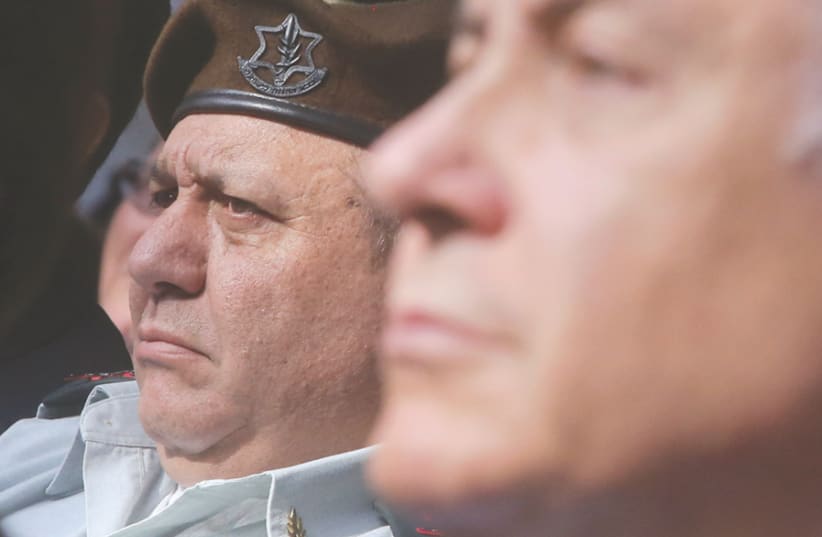Netanyahu's rare admission came at the opening of Sunday's weekly cabinet meeting, with Netanyahu also saying that the IDF has “succeeded impressively in stopping Iran's military buildup in Syria, and in this context the IDF has attacked hundreds of times Iranian and Hezbollah targets.”
"We began attacking systematically a number of times each week [in Syria]. Without making any statements. Under the radar," Eisenkot said.Eisenkot will step down from his post on Tuesday, ending a term fraught with challenges. He will be replaced by Maj.-Gen Aviv Kochavi, currently the deputy chief of staff. In the government, ministers give Eisenkot credit for keeping Iran at bay in Syria and stopping the flow of advanced weaponry to Hezbollah in Lebanon. Privately, Eisenkot speaks proudly of the IDF’s achievement in getting Hezbollah to dismantle its missile factories in Beirut, where it had planned to upgrade the accuracy and range of its massive arsenal.
